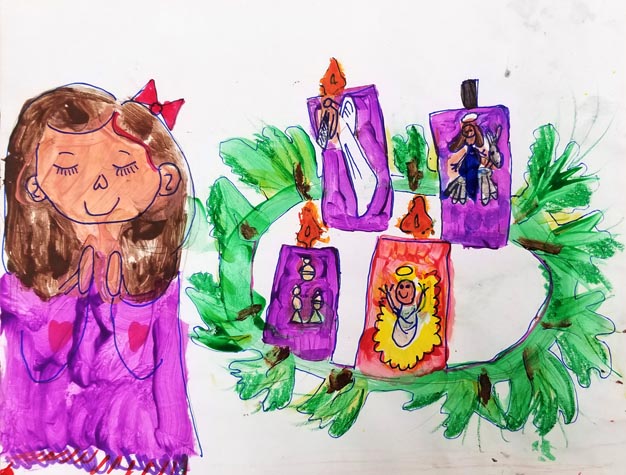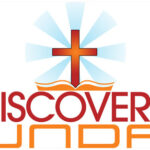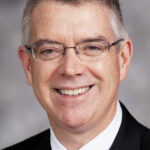
By Fr. Chris Weber
For The Catholic Messenger
Our Gospel for the First Sunday of Advent comes from the middle of what scholars call the “Eschatological Discourse,” that is to say Jesus’ teaching on the end of time. All too often people have looked at these passages as if they were a kind of code. They’ve tried to unpack the signs and symbols that the Scriptures use to talk about the end of time, thinking that if they could just unlock the code they could figure out when exactly it’s coming.
Time and time again, people have announced that they’ve figured it out, that they know the date and the time. Time and time again, those dates and times have come and gone, and yet here we are. Why? Because that’s not how apocalyptic literature works. Think about it. The Bible is God’s self-revelation to his people; it’s God’s message to us. Clearly, if God wanted us to know the day and the hour of his return, he would have told us. He doesn’t work in codes. There was nothing coded about the coming of Christ at Christmas. When he was born, the Scriptures say angels literally filled the sky. A star stood over the place of his birth to announce his presence.

The point of passages like the one in our Gospel today isn’t for us to try to figure out a time and a place. In fact, Jesus explicitly says, “you do not know on which day your Lord will come.” Rather, the point is that we know he is in fact coming again. The Scriptures make it clear that we are living in an era that won’t last forever. The world as we know it had a beginning and it will have an end. All of creation has a goal, an end towards which it is ordered, and that end is found in the union of heaven with earth.
Ultimately, that’s what Advent is meant to prepare us to celebrate — the work that God began at Christmas, when God united himself to humanity in the person of Jesus Christ. When he became one of us so that each of us could have a relationship with him. Ironically, that’s the part that is easiest to miss, if we’re not careful.
We know that the first coming of Christ happened in a manger in Bethlehem two thousand years ago. We know about the second coming, that Christ is coming again at the end of time, even though we don’t know the day or the time. But, there’s a third coming that is the most important of all. The third coming of Christ happens over and over again, day after day, each time Christ is born in us. Each time we recognize him in our lives. Each time we give ourselves over to him, each time we choose to live in relationship with him.
The first and the second comings of Christ are the ones that get all the attention. The thing is, both the first and the second coming of Christ are ordered towards the third. That is to say, Jesus Christ was born in a manger in Bethlehem two thousand years ago so that he could be born into our hearts today.
His coming again at the end of time is a reminder to us that this world is fleeting, that we were created not for the busy-ness of our daily lives, but rather for the union we will know one day, God willing, when we are united with our Creator in heaven. In between, God invites us to live in that third coming, to live each day in a relationship with himself. That’s what the season of Advent is about, preparing our hearts and our minds to be ready to recognize him, and to receive him, whenever he comes to us.
(Father Chris Weber is pastor of Ss. Mary & Mathias Parish in Muscatine and St. Joseph Parish in Columbus Junction.)











